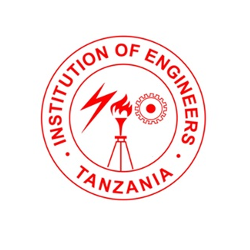TANZANIA:Engineers VS Industrialization Drive
Engineers meeting
here under the aegis of the Institution of Engineers, Tanzania (IET)
said there would be no successful and sustained industrialization drive
which can be achieved without participation of local technicians and
engineers.
"One of the
prerequisites of having an industrial based economy is availability of
technically capable human resource capital which in a sense means
availability of trained engineers and technicians", affirmed IET
President Eng. Ngwisa W.Mpembe.
He said engineers
must take a central role not only in the implementation but in planning
and expertly advising the government on how best to implement the
industrialization process "in an efficient and effective manner".
The IET official,
who was speaking at the start of the 29th national conference of the
professional body established in 1975, said engineers were among the
technical human resource who can ensure the full cycle of
industrialization would have lasting benefits to the economy.
"It is time our
policy makers realized full involvement of our local engineers can
enable the country ride a smooth path of attaining mid income status by
2025 via the vehicle of industrialization", Eng. Mpembe pointed out.
IET was established
to spearhead the development and integration of science, engineering,
technology as well as influence positive public policy and take a lead
in promoting engineering excellence in Tanzania.
Regionally, the
organization is a member of the Eastern African Federation of
Engineering Organizations (EAFEO) and the Commonwealth Engineers Council
(CEC) and the World Federation of Engineering Organizations (WFEO) at
the global level.
Opening the
conference at Naura Springs Hotel, the permanent secretary in the
ministry of Water and Engineering Prof. Kitila Mkumbo said the
government recognises the role and place engineers can and should play
in stimulating and spearheading the industrialization agenda.
"We cannot achieve
our industrialization agenda without you. We need engineers to revive
and rehabilitate our idle industries as well as in developing, running
and maintaining new ones", he said.
According to recent
statistics, there are a total of 19,000 trained engineers in Tanzania.
But only 4,800 are professionals actively engaged in major civil works
and consultancies.
Engineers, he
added, would be required to construct and maintain transport
infrastructure to ensure seamless and timely delivery of raw materials
and manufactured goods. "The industrialization process is basically and
essentially an engineering process".
The PS challenged
the local engineers to take the lead role in the industrialization
process, saying no single developed country in this world has developed
without engineers "because the development process is inherently an
engineering process".
Prof Mkumbo said
more engineers were needed in the water supply sector not only to ensure
reliable supply of the precious liquid to thousands of people but to
repair the dilapidated water structures.
According to him,
there were 39,080 water points which are not functioning, across the
country especially in the rural areas. This constituted 32 per cent of
122,655 water points serving 31 million Tanzanians.
"This is a wasted
investment we are not able to sustain the water supply infrastructure
that we put in rural areas", the PS pointed out, adding that engineers
were needed to accelerate the supply of clean and safe water.
IET is currently in
the process of establishing a data bank of specialist engineers for the
purpose of hastening the building of local capacity of all
professionals in the industry.






No comments